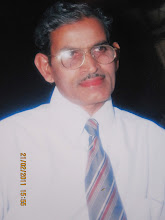Why are the Mother and Father superior than any one in this world ?
In the Upanishads say first of all we should have to respect our mother and father and then others. In Taittireeya Upanishd, it says “ Maatru Devo Bhava, Pitru Devo Bhava, Acharya Devo Bhava and Atidhi Devo Bhava ”., comes in order.
So first and first Mohter ( Maata) is to be respcted.
Every one borns in this Universe by the form of a man with the complxion of face,head (eyes,nose, mouth, ears etc) , hands, legs etc.,. It is the main reason of our parents (mohter and father), and the Gruhasthasrama Dharma says many Dharah about a wife and husband and their household life.
Mother is ultimately the cause for carrying the infant in her womb for nine months and after that with much labour pains she delivers the baby. After that she brings up the baby with much care of love and sacrifices her life for the growth of the baby.
Here, we can know Mother is the ultimately the real and first teacher to her child and children. For the birth of the baby, Father is the main factor. After the baby is born father takes so much care for her/his education, acquiring knowledge, and make them grow greatly in this world. So father also comes next to mother who is to be respected.
Because of this, the ancient classical texts say mother and father both are the Pratyaksha Daivah ( appearing Gods )
in this world.
So one should not hurt their parents and put them into troubles. It is a great sin also. Parents’ blessings are always needed to their children.
In the Mahabharata, the Yaksha ( one of the Deities) asked some questions ( they are called Yaksha Prasnas), Dharmaraja
(Yudhishtira) replied so appropriately. One of the questions of Yaksha, was , “which is the most heaviest thing and which is highest of all things”. Then the Dharma Raja reples like this “ Maataa gurutaraa Bhoomeyh Pitaa vuchhatarascha khat”.
The meanng for that is, the Mother is more heavier than the Earth and the Father is more higher than the Sky ( Space).
